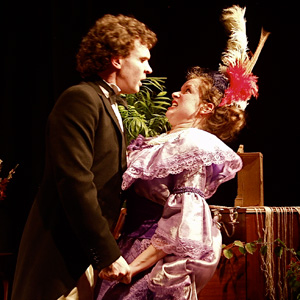Next year Cygnet Training Theatre will be celebrating thirty years as a hands on school, training actors in all areas of the business. Christine Foster finds out more.
We've all met those two theatre professionals – the one who insists that you absolutely should go to drama school and the one who says no, no, you absolutely should not. The second will peer at you kindly over the rim of his wine glass and inform you that all that voice, movement and scene study are great but they aren't going to give you the one thing you need most to hone your craft – the response of an audience.

Well, what if you could have the ultimate combo platter? Enjoy all those valuable classes in technique and also have the chance to play several full runs a year to an enthusiastic, paying audience? The best of both worlds? Could be. Especially if you could get it all in a recognised Conference of Drama Schools three-year programme. Well, the good news is that you can – at Cygnet Training Theatre whose home is a flexible 100 seat studio theatre in a converted church hall in historic Exeter.
Cygnet was founded in 1980 by the late Monica Shallis and current Administrative Director Mary G. Evans, and grew out of their association with Exeter's highly regarded Northcott Theatre. It was their idea to offer drama students the experience of being in their own professional acting company. The prospectus invites applicants from 18 to 35, but most students are in their twenties. That seems to be the ideal age for the maturity, physical energy and passion required to handle the long hours required to learn every aspect of performance and stagecraft. Because, if you get into Cygnet, you're going to climb ladders and hang lights and wield hammers or sew costumes and shift sets and paint the stage from day one. This isn't a programme for anyone wondering whether they want to be in the theatre. If you don't have a solid work ethic or just want to stick an experimental toe into dramatic waters, don't bother to audition.
To read full article, subscribe to The Drama Student magazine.
Be the first to comment